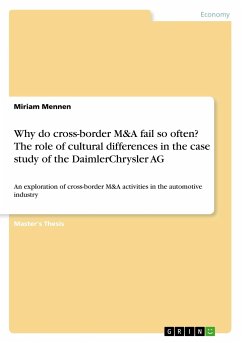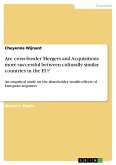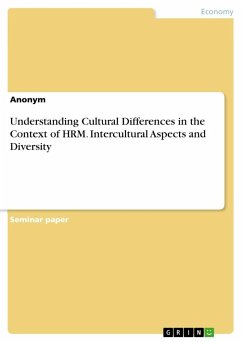Master's Thesis from the year 2008 in the subject Business economics - General, grade: 71 % - A, University of Newcastle, language: English, abstract: There is a high failure rate in cross-border M&A. Many of them fail due to cultural differences of the combining organisations. This study examines the role of culture in cross-border M&A regarding national and organisational culture among other factors that are important for a successful integration strategy in M&A across borders. The factors discussed are based on empirical findings, and on literature that in the analysis, proved to corroborate the findings of the primary data, or insights based on these findings. Since many authors comply with DaimlerChrysler having failed because of two heterogeneously organisational cultures and different management styles trying to combine into a new culture, this topic was of special interest of the researcher. DaimlerChrysler is being used as a case study approach in this research to find out how important the role of culture in cross-border M&A is. Furthermore, it has been observed, that the controversial evidence in the literature if many cross-border M&A fail due to cultural differences is of interest concerning the research objectives and the literature revealed that in this area little research is done so far.Therefore, one objective of this research is to fill the gap in the literature regarding national and organisational culture when integrating one firm with another or by forming an entirely new one in cross-border M&A The analysis of primary data in form of semi-structured interviews has uncovered that the cause of the cultural differences is not always apparent and ignored particularly in business. However, cultural differences are not the only cause for cross-border M&A failure as there are other important factors to take into account.








